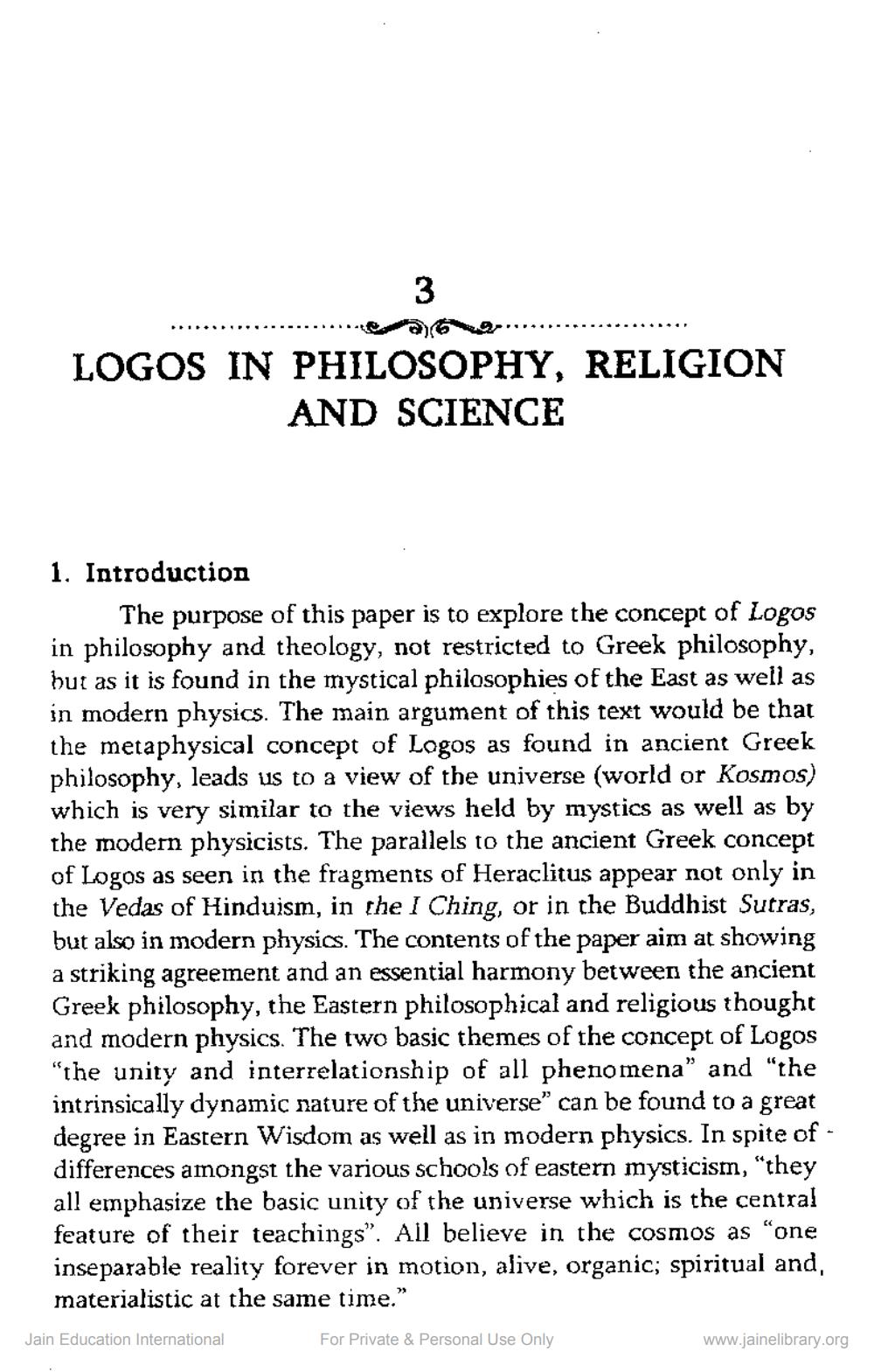Book Title: Logos in Philosophy Religion and Science Author(s): Hemant Shah Publisher: Z_Philosophical_Writings_001802.pdf View full book textPage 1
________________ LOGOS IN PHILOSOPHY, RELIGION AND SCIENCE 1. Introduction The purpose of this paper is to explore the concept of Logos in philosophy and theology, not restricted to Greek philosophy, but as it is found in the mystical philosophies of the East as well as in modern physics. The main argument of this text would be that the metaphysical concept of Logos as found in ancient Greek philosophy, leads us to a view of the universe (world or Kosmos) which is very similar to the views held by mystics as well as by the modern physicists. The parallels to the ancient Greek concept of Logos as seen in the fragments of Heraclitus appear not only in the Vedas of Hinduism, in the I Ching, or in the Buddhist Sutras, but also in modern physics. The contents of the paper aim at showing a striking agreement and an essential harmony between the ancient Greek philosophy, the Eastern philosophical and religious thought and modern physics. The two basic themes of the concept of Logos "the unity and interrelationship of all phenomena" and "the intrinsically dynamic nature of the universe" can be found to a great degree in Eastern Wisdom as well as in modern physics. In spite of - differences amongst the various schools of eastern mysticism, “they all emphasize the basic unity of the universe which is the central feature of their teachings". All believe in the cosmos as “one inseparable reality forever in motion, alive, organic; spiritual and, materialistic at the same time." Jain Education International For Private & Personal Use Only www.jainelibrary.orgPage Navigation
1 2 3 4 5 6 7 8 9 10 11 12 ... 22
